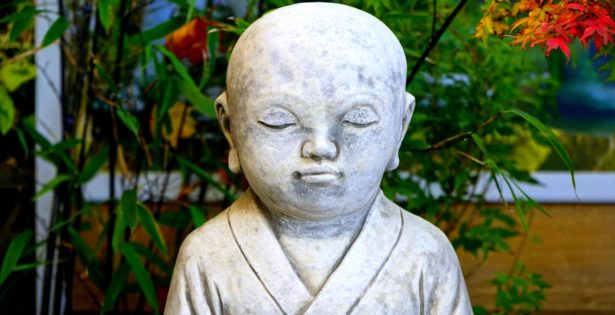WP_Query Object
(
[query] => Array
(
[category__in] => Array
(
[0] => 67
[1] => 419
[2] => 66
[3] => 25
[4] => 65
)
[post__not_in] => Array
(
[0] => 8850
)
[posts_per_page] => 50
[ignore_sticky_posts] => 1
[orderby] => desc
[_shuffle_and_pick] => 3
)
[query_vars] => Array
(
[category__in] => Array
(
[0] => 67
[1] => 419
[2] => 66
[3] => 25
[4] => 65
)
[post__not_in] => Array
(
[0] => 8850
)
[posts_per_page] => 50
[ignore_sticky_posts] => 1
[orderby] => desc
[_shuffle_and_pick] => 3
[error] =>
[m] =>
[p] => 0
[post_parent] =>
[subpost] =>
[subpost_id] =>
[attachment] =>
[attachment_id] => 0
[name] =>
[pagename] =>
[page_id] => 0
[second] =>
[minute] =>
[hour] =>
[day] => 0
[monthnum] => 0
[year] => 0
[w] => 0
[category_name] => creative_living
[tag] =>
[cat] => 67
[tag_id] =>
[author] =>
[author_name] =>
[feed] =>
[tb] =>
[paged] => 0
[meta_key] =>
[meta_value] =>
[preview] =>
[s] =>
[sentence] =>
[title] =>
[fields] =>
[menu_order] =>
[embed] =>
[category__not_in] => Array
(
)
[category__and] => Array
(
)
[post__in] => Array
(
)
[post_name__in] => Array
(
)
[tag__in] => Array
(
)
[tag__not_in] => Array
(
)
[tag__and] => Array
(
)
[tag_slug__in] => Array
(
)
[tag_slug__and] => Array
(
)
[post_parent__in] => Array
(
)
[post_parent__not_in] => Array
(
)
[author__in] => Array
(
)
[author__not_in] => Array
(
)
[search_columns] => Array
(
)
[suppress_filters] =>
[cache_results] => 1
[update_post_term_cache] => 1
[update_menu_item_cache] =>
[lazy_load_term_meta] => 1
[update_post_meta_cache] => 1
[post_type] =>
[nopaging] =>
[comments_per_page] => 50
[no_found_rows] =>
[order] => DESC
)
[tax_query] => WP_Tax_Query Object
(
[queries] => Array
(
[0] => Array
(
[taxonomy] => category
[terms] => Array
(
[0] => 67
[1] => 419
[2] => 66
[3] => 25
[4] => 65
)
[field] => term_id
[operator] => IN
[include_children] =>
)
)
[relation] => AND
[table_aliases:protected] => Array
(
[0] => wp_term_relationships
)
[queried_terms] => Array
(
[category] => Array
(
[terms] => Array
(
[0] => 67
[1] => 419
[2] => 66
[3] => 25
[4] => 65
)
[field] => term_id
)
)
[primary_table] => wp_posts
[primary_id_column] => ID
)
[meta_query] => WP_Meta_Query Object
(
[queries] => Array
(
)
[relation] =>
[meta_table] =>
[meta_id_column] =>
[primary_table] =>
[primary_id_column] =>
[table_aliases:protected] => Array
(
)
[clauses:protected] => Array
(
)
[has_or_relation:protected] =>
)
[date_query] =>
[request] =>
SELECT SQL_CALC_FOUND_ROWS wp_posts.ID
FROM wp_posts LEFT JOIN wp_term_relationships ON (wp_posts.ID = wp_term_relationships.object_id)
WHERE 1=1 AND wp_posts.ID NOT IN (8850) AND (
wp_term_relationships.term_taxonomy_id IN (25,65,66,67,419)
) AND ((wp_posts.post_type = 'post' AND (wp_posts.post_status = 'publish' OR wp_posts.post_status = 'acf-disabled')))
AND ID NOT IN
(SELECT `post_id` FROM wp_postmeta
WHERE `meta_key` = '_pilotpress_level'
AND `meta_value` IN ('','employee')
AND `post_id` NOT IN
(SELECT `post_id` FROM wp_postmeta
WHERE `meta_key` = '_pilotpress_level'
AND `meta_value` IN ('' )))
GROUP BY wp_posts.ID
ORDER BY wp_posts.post_date DESC
LIMIT 0, 50
[posts] => Array
(
[0] => WP_Post Object
(
[ID] => 8945
[post_author] => 3
[post_date] => 2023-02-01 21:31:36
[post_date_gmt] => 2023-02-01 21:31:36
[post_content] =>
While I wouldn’t wish pain on anyone, I don’t always think it’s best to make it go away as fast as possible. Sometimes the need to manage pain takes us inward, prompting us to understand our workings and to heal longstanding patterns that might otherwise have never been discovered.
My starting point in pain management is a fundamental principle of Chinese Medicine: All pain is caused by stagnation. When things move freely (muscles, joints, blood, poop, etc.), we feel good. When they don’t, we feel bad.
If we overeat and food is stagnant in our digestive tract, we feel uncomfortable. If blood stops moving through the vessels in our heart, it causes a crushing pain. If our muscles are inflamed or tight (stagnation), they hurt. In the same way, if we broke up with someone but we keep fantasizing about them or replaying our conversations, this also is a form of stagnation, and it’s painful. If we’re attached to life being a certain way, it’s not that way, we don’t accept it, and we feel bad… guess why.
So, the restoration of flow is my focus, no matter what kind of pain a person is in. Besides understanding the mechanism of stagnation in causing and perpetuating pain, it’s important for everyone to know these four sub-principles:
1: All of our many parts are interconnected, so stagnation on one level can readily lead to stagnation on another level. Two examples: If we’re chronically angry, tense, or sad (emotional stagnation) this can eventually show up as, say, a tension headache or lower back pain (physical stagnation). Vice versa, living in a tight and inflexible body (physical stagnation) can contribute to a lack of mental flexibility - rigid thinking, frustration, depression, etc.
2: Clearing stagnation on any level tends to promote flow on all levels. For instance, physical exercise is beneficial for depression, because moving the body moves the mind. Likewise, using the mind to imagine energy and blood coursing freely through a painful area of the body can often be as effective as painkillers. For this reason, stretching the mind – challenging our beliefs, thinking outside our usual patterns, meditating, actively exploring our inner terrain – is excellent for mind-body health.
3: Resisting reality promotes stagnation. Philip K. Dick said, “Reality is that which, when you stop believing in it, doesn't go away.” Fighting reality amounts to inner resistance and resistance causes stagnation. In my opinion, it’s one of the most basic mechanisms of human pathology: an inner “no” that causes us to close and fragment ourselves. Resistance of what’s happening (not just our circumstances but also our own thoughts and feelings) causes an additional dimension of discomfort and hampers our ability to change our condition. In a pain scenario, the resistance of an already stagnant condition inevitably makes it worse.
4: Active acceptance is the opposite of resistance and promotes healing. Acceptance is a combination of willingness, openness, and nonattachment. When we’re totally willing to experience the reality of this moment, with every aspect of ourselves, with absolute openness and trust, simultaneously letting go entirely of any desire to control what happens next, healing happens automatically. It may not look like a tumor instantly disappearing or pain dropping from a ten to a zero, but something will change. This isn’t a do-it-once magic formula, it’s a way of life. And if pain is what leads you to it, you may end up thanking your pain.
If these ideas resonate with you, check out my online course, Live Pain Free, for many more ways to get out of pain and experience greater peace and happiness in the process.
Be well,
Peter
[post_title] => What Everyone Should Know About Pain
[post_excerpt] =>
[post_status] => publish
[comment_status] => open
[ping_status] => open
[post_password] =>
[post_name] => what-everyone-should-know-about-pain
[to_ping] =>
[pinged] =>
[post_modified] => 2023-02-01 21:31:36
[post_modified_gmt] => 2023-02-01 21:31:36
[post_content_filtered] =>
[post_parent] => 0
[guid] => https://thedragontree.com/?p=8945
[menu_order] => 0
[post_type] => post
[post_mime_type] =>
[comment_count] => 4
[filter] => raw
[webinar_id] => 0
)
[1] => WP_Post Object
(
[ID] => 8858
[post_author] => 3
[post_date] => 2022-11-18 20:14:07
[post_date_gmt] => 2022-11-18 20:14:07
[post_content] =>
Gratitude is the understanding that many millions of things come together and live together and mesh together and breathe together in order for us to take even one more breath of air, that the underlying gift of life and incarnation as a living, participating human being is a privilege; that we are miraculously, part of something, rather than nothing. – David Whyte
Coincidentally, I encountered this quote shortly after hearing a lecture on happiness in which the speaker asserted that when we truly recognize our privilege, we readily feel enthusiastic and grateful about whatever we’re engaged in, work included.
It’s easy to forget to be grateful though, just as it’s natural to expect life to continue in roughly the way it always has, with ample clean air, water, food, electricity, safety, and everything else that supports us. Sometimes it’s not until we experience contrast that we recognize our privilege.
Having a period of sickness makes us appreciate our health. Smoky air makes us appreciate fresh air – and firefighters and rain. Traveling in an area with mediocre food options makes us appreciate farmers’ markets and well-stocked grocery stores. All of our adversity, including even our day-to-day micro-adversities, can become prompts to recognize what’s still working and good in our life. You can even try making a rule for yourself that every time you complain about something – even just to yourself – you follow it with a statement of gratitude.
When traffic is bad, what’s good? When there’s pain in your back, what parts of your body still work well and feel okay?
Of course, we don’t need to wait for suffering in order to pay attention to our gifts. It’s just that suffering – especially when it’s really painful – has a way of capturing our attention. The key is the paying attention, and we’re in the habit of letting our attention go to whatever’s loudest or most dramatic, like media, interpersonal conflict, and worry.
Sometimes we need to grab our attention and put it on something else. And when I say “sometimes” I mean virtually all the time – choosing intentionally what we’re putting our attention on. Might I recommend a good place to put it: on the total experience that is happening right here, right now. Your breath and the air entering and exiting your lungs. What it feels like in your body. What you’re currently engaged in. The land you’re sitting on. The beating of your heart. The sun illuminating the world. The soft clothes on your skin. The feeling of the earth’s gravity acting on you.
We want to feel spontaneous gratitude, the exalted kind that comes to us with strong emotion, rather than needing to prompt ourselves to think of something to be grateful for. But the chosen form isn’t any less real. And it has the same benefits of promoting happiness, broadening our perspective, and focusing our energy on good things.
I am grateful for you.
Love,
Peter & Everyone at the Dragontree
[post_title] => Gratitude
[post_excerpt] =>
[post_status] => publish
[comment_status] => open
[ping_status] => open
[post_password] =>
[post_name] => gratitude-2
[to_ping] =>
[pinged] =>
[post_modified] => 2022-11-18 20:15:04
[post_modified_gmt] => 2022-11-18 20:15:04
[post_content_filtered] =>
[post_parent] => 0
[guid] => https://thedragontree.com/?p=8858
[menu_order] => 0
[post_type] => post
[post_mime_type] =>
[comment_count] => 0
[filter] => raw
[webinar_id] => 0
)
[2] => WP_Post Object
(
[ID] => 8933
[post_author] => 3
[post_date] => 2023-01-19 19:24:36
[post_date_gmt] => 2023-01-19 19:24:36
[post_content] =>
When I first delved into cognitive behavioral therapy (CBT) as a psychology major, I remember thinking, “This is an evolution for humans.” CBT focuses on examining and challenging one’s thoughts and beliefs, changing related behaviors, and building coping skills and emotional regulation.
Of course, there is a long philosophical tradition of examining the nature of human thought and behavior, but the advent of cognitive and behavioral psychology in the past couple centuries infused these concepts into mainstream culture in a profound way. It’s now common for people to talk about their thoughts as something separate from themselves, and to routinely employ behavior modification techniques in all areas of life.
I had a mentor in my early 20s who was a big advocate of CBT, and at the time I told her I had been exploring methods for healing the memories of traumatic events. I felt both rebuffed and inspired when she said, “You’re wasting your time. We don’t need to go back and relive our childhood or spend the rest of our life lying on some shrink’s couch analyzing everything that ever happened to us! All that matters is, right now, are you going to be at the mercy of your thoughts and automatic behaviors, or are you going to manage whatever comes up in a conscious, intentional way?”
I’ve thought a lot about this in the decades since. My mentor was of the mind that we don’t need to figure out why these painful or dysfunctional patterns keep coming up, we just need to change our response to them, and eventually we’ll transform our psychological makeup in a permanent way. I believe there is real value to this approach, and also . . . sometimes I think we need to go back.
When it comes to our healing and growth, here are three good reasons to revisit your past:
(1) If you’re constantly managing your response to a recurrent pattern, it might be more efficient to get to the root of the pattern and dismantle it (or at least mitigate it) so that it doesn’t come up much, if at all. Of course, you can also use cognitive and behavioral strategies if it does arise.
(2) There is potential for deeper self-awareness, insight, and growth through visiting your past and coming to understand the factors that went into making you who you are. These are opportunities to forgive, correct misunderstandings, reframe our stories, and revise or erase beliefs. While it’s totally possible for many people to be happy without going there, it’s probably not possible to be self-actualized without making peace with your past.
There are some caveats. Analyzing your past can be taken to a self-indulgent degree. It can retrigger old trauma. And most common, it can make us feel worse as we work through it (and experience it without resistance, perhaps for the first time) – though this usually gives way to greater freedom. Thus, it’s important to do this work when you’re feeling relatively stable, with a clear sense of why (what you hope to accomplish), and with the tools and/or support to do it in a way that’s likely to turn out well.
(3) Finally, some people seek total liberation from our programming, i.e., the ego. Once this urge awakens in us, it often never goes fully back to sleep. If you’re in this boat, you may find value in recapitulation.
I read about recapitulation in a Carlos Castaneda book when I was 18 and it seemed unfathomable. Castaneda, a Peruvian anthropologist-turned-apprentice of shamanism, was instructed by his teacher to write down his entire life story, from his very earliest memories, including every person he had ever met. This process, he was told, was necessary to free him from his worldly attachments. It took him years. I remember thinking, “I could never do that.”
Since then, I’ve encountered various forms of recapitulation in my other studies of shamanism, and I now feel it’s more doable than I previously believed. Could it take years? Absolutely. But you’ve got time, and it’s not an all-or-nothing proposition. Every time we release some piece of baggage, it’s like dropping a sandbag from a hot air balloon. We’re that much lighter and freer – even if we’re not “done.”
As we go through our history, we find countless moments that have a certain weight or charge. They exist in a state of incomplete resolution. Taken together they have a powerful influence on how we show up in the present. They can make us dwell in the past and fear the future. They can cause us to live within a fraction of the spectrum of what’s possible. In short, they limit our freedom. As we loosen our history’s grip on us, we thus loosen the grip of our ego, and we more readily access our true essence and potential.
I stumbled upon my own recapitulation process while doing somatic releasing practices. In a nutshell, all our history with a charge – everything that doesn’t sit neutrally in us – can be experienced through the body. There is a physical expression and felt experience to all of it. And in willingly visiting it, experiencing it without resistance, and accepting it, we promote its resolution.
If this is unfamiliar territory for you, just try this: Bring up something about your current life or your past that you wish were different. While holding this in mind, expand your awareness to include what you feel in your body. You will perceive a certain unease. As you meet it and even invite it, the unease loosens. (Sometimes this takes a little practice, especially if you’re not accustomed to feeling your feelings. If you’re interested in diving deeper into this process, check out our workbook called Freedom.)
When we do this work we inevitably find layers of holding. We release one layer and discover another layer, and so on. In my case, I began to recognize the layers faster than I could process them, so I started writing them down. Hundreds of cords, linking me to my past, pulling on me, distorting my present self. The list grew at the same rate that I crossed things off it. I’m not nearly done, but I feel much lighter.
I’m not saying a person can’t show up in a clean and authentic way until they release every conflict or resentment they’ve ever had. What I mean is that a thorough recapitulation facilitates ego liberation – something that’s beyond the scope of CBT and, frankly, not of interest to most people.
In my own process, I found that I was sometimes inspired to move my body in certain ways to assist the release of a sticky pattern, which is an integral part of some somatic therapies. Interestingly, it’s also a technique used in shamanic recapitulation. As Sandra Ingerman and Hank Wesselman explain in their book, Awakening to the Spirit World, we can facilitate the “unraveling” of a memory (or the emotional charge attached to it) by spinning. This can also be accomplished by turning the head or twisting the body from side to side, and the authors say they believe this is also why EMDR (Eye Movement Desensitization and Reprocessing) works. They recommend spinning or turning while breathing deep into the memory and its associated emotions, accepting it, and intending to release it.
I believe recapitulation also occurs to some extent automatically, especially when we’re ready for it: in dreaming; in meditation, when we are sometimes spontaneously presented with something from the past that needs to be “cleared”; in yoga and exercise; and very often under the influence of entheogenic (psychedelic) substances, especially when used intentionally as medicine. This is why psilocybin mushrooms are rapidly gaining a reputation as one of the most effective therapies for attaining peace at the end of life.
I’m curious to hear from readers about your experience with the different approaches I discussed. Have you used CBT, and did it help? Have you dug into your past to heal yourself? What methods did you use, and how did it go? Have you done a large scale recapitulation? What was the outcome? Please share.
Be well,
Peter
[post_title] => Are You Willing to Go All the Way Back?
[post_excerpt] =>
[post_status] => publish
[comment_status] => open
[ping_status] => open
[post_password] =>
[post_name] => are-you-willing-to-go-all-the-way-back
[to_ping] =>
[pinged] =>
[post_modified] => 2023-01-19 19:47:15
[post_modified_gmt] => 2023-01-19 19:47:15
[post_content_filtered] =>
[post_parent] => 0
[guid] => https://thedragontree.com/?p=8933
[menu_order] => 0
[post_type] => post
[post_mime_type] =>
[comment_count] => 5
[filter] => raw
[webinar_id] => 0
)
)
[post_count] => 3
[current_post] => -1
[before_loop] => 1
[in_the_loop] =>
[post] => WP_Post Object
(
[ID] => 8945
[post_author] => 3
[post_date] => 2023-02-01 21:31:36
[post_date_gmt] => 2023-02-01 21:31:36
[post_content] =>
While I wouldn’t wish pain on anyone, I don’t always think it’s best to make it go away as fast as possible. Sometimes the need to manage pain takes us inward, prompting us to understand our workings and to heal longstanding patterns that might otherwise have never been discovered.
My starting point in pain management is a fundamental principle of Chinese Medicine: All pain is caused by stagnation. When things move freely (muscles, joints, blood, poop, etc.), we feel good. When they don’t, we feel bad.
If we overeat and food is stagnant in our digestive tract, we feel uncomfortable. If blood stops moving through the vessels in our heart, it causes a crushing pain. If our muscles are inflamed or tight (stagnation), they hurt. In the same way, if we broke up with someone but we keep fantasizing about them or replaying our conversations, this also is a form of stagnation, and it’s painful. If we’re attached to life being a certain way, it’s not that way, we don’t accept it, and we feel bad… guess why.
So, the restoration of flow is my focus, no matter what kind of pain a person is in. Besides understanding the mechanism of stagnation in causing and perpetuating pain, it’s important for everyone to know these four sub-principles:
1: All of our many parts are interconnected, so stagnation on one level can readily lead to stagnation on another level. Two examples: If we’re chronically angry, tense, or sad (emotional stagnation) this can eventually show up as, say, a tension headache or lower back pain (physical stagnation). Vice versa, living in a tight and inflexible body (physical stagnation) can contribute to a lack of mental flexibility - rigid thinking, frustration, depression, etc.
2: Clearing stagnation on any level tends to promote flow on all levels. For instance, physical exercise is beneficial for depression, because moving the body moves the mind. Likewise, using the mind to imagine energy and blood coursing freely through a painful area of the body can often be as effective as painkillers. For this reason, stretching the mind – challenging our beliefs, thinking outside our usual patterns, meditating, actively exploring our inner terrain – is excellent for mind-body health.
3: Resisting reality promotes stagnation. Philip K. Dick said, “Reality is that which, when you stop believing in it, doesn't go away.” Fighting reality amounts to inner resistance and resistance causes stagnation. In my opinion, it’s one of the most basic mechanisms of human pathology: an inner “no” that causes us to close and fragment ourselves. Resistance of what’s happening (not just our circumstances but also our own thoughts and feelings) causes an additional dimension of discomfort and hampers our ability to change our condition. In a pain scenario, the resistance of an already stagnant condition inevitably makes it worse.
4: Active acceptance is the opposite of resistance and promotes healing. Acceptance is a combination of willingness, openness, and nonattachment. When we’re totally willing to experience the reality of this moment, with every aspect of ourselves, with absolute openness and trust, simultaneously letting go entirely of any desire to control what happens next, healing happens automatically. It may not look like a tumor instantly disappearing or pain dropping from a ten to a zero, but something will change. This isn’t a do-it-once magic formula, it’s a way of life. And if pain is what leads you to it, you may end up thanking your pain.
If these ideas resonate with you, check out my online course, Live Pain Free, for many more ways to get out of pain and experience greater peace and happiness in the process.
Be well,
Peter
[post_title] => What Everyone Should Know About Pain
[post_excerpt] =>
[post_status] => publish
[comment_status] => open
[ping_status] => open
[post_password] =>
[post_name] => what-everyone-should-know-about-pain
[to_ping] =>
[pinged] =>
[post_modified] => 2023-02-01 21:31:36
[post_modified_gmt] => 2023-02-01 21:31:36
[post_content_filtered] =>
[post_parent] => 0
[guid] => https://thedragontree.com/?p=8945
[menu_order] => 0
[post_type] => post
[post_mime_type] =>
[comment_count] => 4
[filter] => raw
[webinar_id] => 0
)
[comment_count] => 0
[current_comment] => -1
[found_posts] => 286
[max_num_pages] => 6
[max_num_comment_pages] => 0
[is_single] =>
[is_preview] =>
[is_page] =>
[is_archive] => 1
[is_date] =>
[is_year] =>
[is_month] =>
[is_day] =>
[is_time] =>
[is_author] =>
[is_category] => 1
[is_tag] =>
[is_tax] =>
[is_search] =>
[is_feed] =>
[is_comment_feed] =>
[is_trackback] =>
[is_home] =>
[is_privacy_policy] =>
[is_404] =>
[is_embed] =>
[is_paged] =>
[is_admin] =>
[is_attachment] =>
[is_singular] =>
[is_robots] =>
[is_favicon] =>
[is_posts_page] =>
[is_post_type_archive] =>
[query_vars_hash:WP_Query:private] => a097e456dd6a6f35f33e32daab6269e7
[query_vars_changed:WP_Query:private] =>
[thumbnails_cached] =>
[allow_query_attachment_by_filename:protected] =>
[stopwords:WP_Query:private] =>
[compat_fields:WP_Query:private] => Array
(
[0] => query_vars_hash
[1] => query_vars_changed
)
[compat_methods:WP_Query:private] => Array
(
[0] => init_query_flags
[1] => parse_tax_query
)
)



 Cart
Cart














